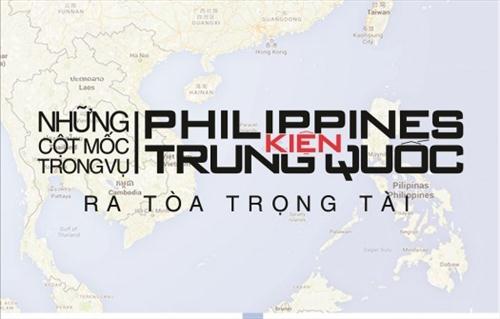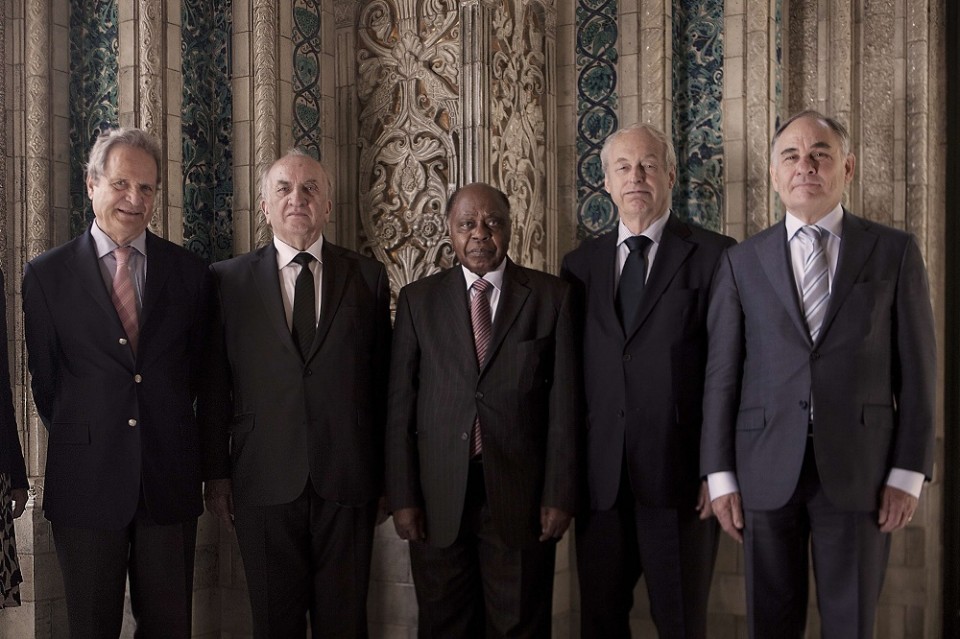
Associate Professor Pham Quang Minh, Rector of the University of Social Sciences and Humanities, Vietnam National University, Hanoi, made this assessment in an interview with the World & Vietnam Newspaper following the ruling of the arbitration tribunal established under Annex VII of the 1982 United Nations Convention on the Law of the Sea (UNCLOS) in the case between the Philippines and China.

Assoc. Prof. Dr. Pham Quang Minh.
How do you assess the significance of this ruling?
In my opinion, the ruling is historically significant. This is because disputes between China and Southeast Asian countries have been ongoing for a very long time. Although the two sides have reached some agreements, such as the Declaration on the Conduct of Parties in the South China Sea (DOC) and the Guidelines for the Implementation of the DOC, these have not fundamentally resolved the disputes between the parties.
Therefore, the ruling is a huge step forward, arguably a turning point, in the move toward resolving disputes between the parties in the South China Sea.
This is the most civilized way to resolve the issue, and it is recognized by the international community. International law has not been truly respected in some cases, but ultimately, this is still a peaceful means of resolving disputes. We are moving towards a society that upholds the rule of law. I think the ruling will have a very strong impact on both the plaintiff and the defendant. The case serves as a model for other countries in the region to apply and learn from.
So, in your opinion, what will the Philippines' attitude and behavior be like in the future?
I believe the Philippines is very pleased, because when deciding to file a case with the Arbitration Tribunal, the country had to carefully consider its political, economic, security, and defense interests. The Philippines knew that it was a smaller country than China, and therefore, in initiating the lawsuit could come at a very high price. China could impose sanctions, and in fact, Beijing has done so. It can be said that suing Beijing before the Arbitration Tribunal was a very courageous decision by Manila.

The five-member Arbitration Panel established under Annex VII of UNCLOS 1982 is hearing the case brought by the Philippines.
Currently, the most important thing for the Philippines is how to implement the Court's ruling. This depends heavily on the new President Rodrigo Duterte, who has a more moderate stance on relations with China than his predecessor. We are looking to see how President Duterte handles relations with China. Duterte faces immense pressure from the people on one hand, and pressure from his relationship with a major power on the other. Time has shown that, despite China's efforts to create difficulties in economic relations between the two countries, the Philippines has still experienced very good economic development. This reality instills confidence in the leaders and people of the Philippines. Even though the Court only considered 7 out of 15 points, or about half of the request, this still represents a great success for the Philippines. It shows that the law still has meaning, and international law still has the power to protect the interests of smaller countries against larger ones.
Some argue that the ruling is proof of the success of smaller countries in their struggle against larger ones. What are your thoughts on this assessment?
This statement is only partially true. If smaller countries behave improperly or make demands contrary to the law, the court cannot rule in their favor.
Throughout history, the notion that "might makes right" has prevailed, leading many to believe the ruling was a victory for the smaller nation. However, I emphasize that this is ultimately a victory for justice and international law. In today's globalized context, the spirit of the rule of law must be upheld. More than ever, the law must be respected by both large and small nations. Large nations must not create bad precedents that cause smaller nations to feel discouraged or lose hope for a future where the rule of law is recognized.
As for China, it has consistently maintained a stance of not accepting any ruling from the Arbitration Tribunal. How do you assess that attitude?
From the outset, Beijing refused to participate in the lawsuit, creating difficulties for Manila. Throughout the proceedings, Beijing also warned of the potential damage Manila could suffer if it decided to pursue the case. Furthermore, it lobbied other countries to support its position and oppose the Philippines.
In the period leading up to the arbitration tribunal's ruling, China employed numerous measures, particularly diplomatic ones. They included...The list includes approximately 60 countries supporting China's position. However, in reality, only 8 countries have publicly endorsed its stance on the South China Sea dispute, and these are small, geographically distant countries not directly involved in the dispute. This shows that China's position does not have international support.
What are your predictions regarding China's next actions in the South China Sea following the court ruling?
I believe that, firstly, diplomatically, China has issued official statements. Secondly, China may react strongly, meaning it will disregard all objections and continue to assert its position by continuing to reclaim the features it has been developing for over a year, while simultaneously militarizing and establishing an Air Defense Identification Zone (ADIZ). Beijing might even withdraw from the 1982 United Nations Convention on the Law of the Sea (UNCLOS).
Thirdly, China might de-escalate, appeasing other countries by appearing to comply with the ruling, in order to please the international community and countries in the region. However, in reality, they would still secretly consolidate the positions they have reclaimed. Of these two scenarios, "tough" and "soft," I believe China would probably choose the conciliatory approach.
So, in your opinion, what is the US attitude following the arbitration ruling on the South China Sea issue?
In my opinion, the US is pleased with the victory of the Philippines – one of its ally. Although it did not sign and ratify UNCLOS, the most important thing for the US is freedom of navigation and freedom of overflight.
With this ruling, the freedom of navigation and overflight for all countries is guaranteed because the entities in the South China Sea do not have Exclusive Economic Zones (EEZs) or continental shelves. China's "nine-dash line" map is also invalid. Thus, the US has achieved its own interests and those of its allies.
In its "Pivot" strategy, the US not only aims to secure its leading position through freedom of navigation and overflight, but also to protect its allies. This desire is demonstrated through activities such as joint military exercises. Maintaining a peaceful and stable regional environment and strengthening cooperation with ASEAN countries are key aspects of the US strategy. The US has supported initiatives from small and medium-sized countries and multilateral mechanisms like ASEAN; therefore, the US is also pleased with the ruling.
According to him, will the Court's ruling bring China closer to the negotiating table, and will it help ASEAN countries to soon finalize a Code of Conduct in the South China Sea (COC)?
Perhaps in the long run, China will follow that path. However, in the short term, China will not behave that way. It is not easy for a country to change its stance, especially one that it claims relates to its core interests. Whether Beijing's response is "tough" or "soft," in my opinion, the core issue remains the preservation of its own interests.
Therefore, it will take a very long time for Chinese leaders to change their perceptions and viewpoints. Currently, Chinese leaders are in an extremely difficult position. Specifically, if Xi Jinping's administration immediately changes its stance, Beijing will lose its standing and prestige in the eyes of its own people. However, if it does not implement the court's rulings, China's prestige internationally will decline. But in my opinion, perhaps China's implementation of the rulings could help it maintain its position both domestically and internationally.
According to him, in the near future, will ASEAN be able to issue a joint statement on the South China Sea issue or the arbitration ruling?
This depends on two key points. Firstly, at the upcoming ASEAN Foreign Ministers' Meeting (AMM) in Laos, the ASEAN foreign ministers must discuss thoroughly to reach a consensus. A spirit of unity and solidarity will create a stronger position and greater prestige for ASEAN.
Secondly, there is the factor of Laos holding the ASEAN Chair position in 2016. Although a small country within ASEAN, Laos also has a certain position and influence, and maintains close relations with Vietnam and China. The upcoming AMM meeting could be a crucial test, not only for bilateral relations between Vietnam and Laos, but also for the unity and solidarity of ASEAN. I believe that Laos will be able to reconcile these two factors.
Thank you, sir.
According to Hang PhamButWorld & Vietnam Newspaper
Newer news
Older news